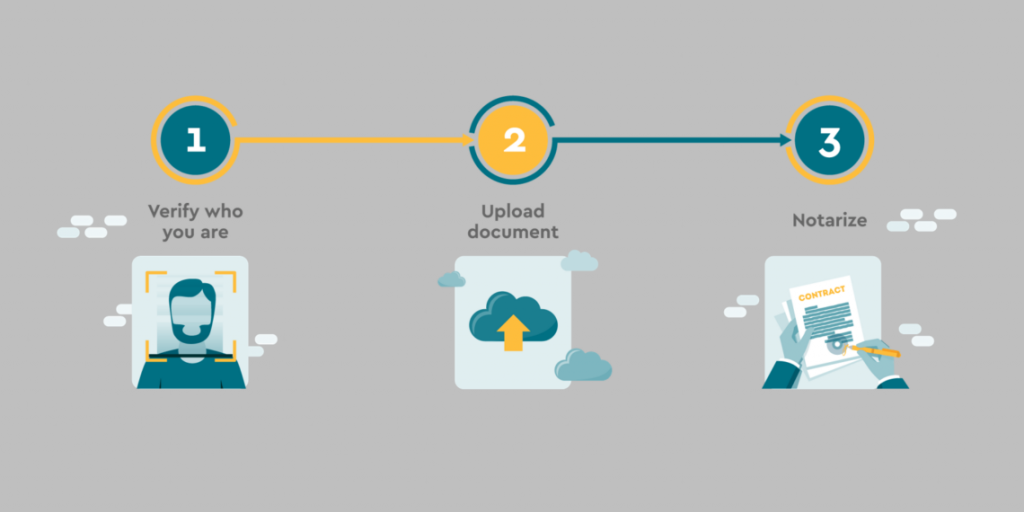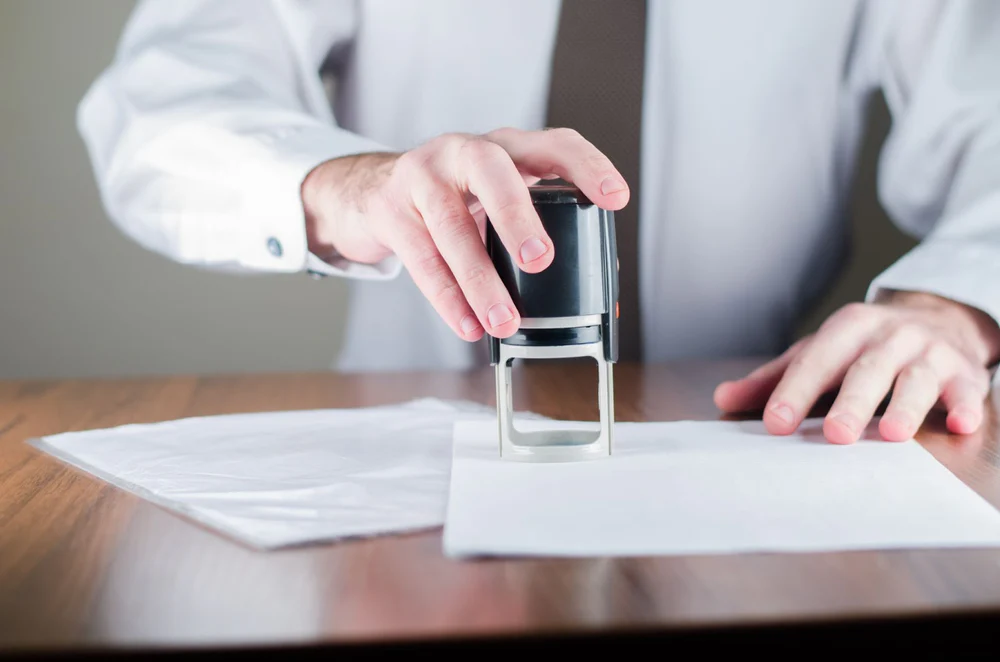Notarization serves as a cornerstone in the legal landscape, acting as a seal of authenticity for various documents. It involves the verification of signatures and identities by a certified notary public, ensuring the validity and legality of contracts, deeds, and other legal instruments. However, the process of notarization becomes nuanced when it comes to transactions involving family members, particularly in the state of Florida. Understanding the intricacies of notarizing documents for relatives, such as siblings. It requires a keen awareness of both legal requirements and ethical considerations. In this article, we delve into the complexities surrounding notarization within familial relationships, exploring the guidelines, limitations, and alternative options available to individuals seeking to authenticate documents for their sister or other family members to notarize in Florida.
The notarization process in Florida follows strict legal protocols, guided by state laws and regulations. Notaries play a crucial role in overseeing the signing of documents, verifying identities, and certifying signatures. However, when it comes to notarizing documents for family members, including siblings. Notaries must navigate potential conflicts of interest and adhere to ethical standards to ensure impartiality and integrity. This article aims to provide clarity on the legal framework surrounding notarization for relatives in Florida. Which offer insights into the responsibilities of notaries and the alternatives available to individuals seeking to validate documents for their sisters within the bounds of the law.
Understanding Notarization

Notarization is a crucial process in the legal world, serving as a means to validate the authenticity and legality of various documents. It involves the careful verification of signatures, and identities, and the execution of legal instruments by a certified notary public. This process ensures that documents such as contracts, deeds, and affidavits are executed properly and in compliance with relevant laws and regulations. Notarization adds an extra layer of assurance for all parties involved in a transaction. Which provides confidence in the validity and enforceability of the document. By understanding the fundamentals of notarization, individuals can navigate legal processes with clarity and certainty. knowing that their documents have been properly authenticated by a trusted authority.
Moreover, notaries public are entrusted with upholding the principles of impartiality and integrity throughout the notarization process. They are duty-bound to remain neutral and unbiased, irrespective of their relationship with the individuals involved in the transaction. This commitment to impartiality underscores the importance of maintaining the credibility and validity of notarized documents, instilling confidence in their legal standing. In essence, understanding notarization empowers individuals to navigate legal proceedings with confidence. Knowing that their documents have been authenticated by a qualified and impartial authority.
Notarization Process in Florida

The notarization process in Florida follows a structured framework governed by state laws and regulations. Individuals seeking notarial services must adhere to specific legal requirements to ensure the validity and legality of their documents. In Florida, notaries public are appointed by the state governor and authorized to perform various duties. Which include witnessing signatures, administering oaths, and certifying documents.
To become a notary public in Florida, individuals must meet certain eligibility criteria. Which typically includes completing a state-approved education course and passing an exam. Once appointed, notaries must comply with strict guidelines and ethical standards while performing their duties. These guidelines dictate the proper procedures for verifying the identity of signers, administering oaths, and maintaining accurate records of notarized transactions.
During the notarization process, the notary public verifies the identity of the signer by examining government-issued identification documents, such as driver’s licenses or passports. The signer must then affirm their willingness to sign the document voluntarily and without coercion. Once these prerequisites are met, the notary public affixes their official seal or stamp to the document. Along with their signature and other required information. This certification by a notary public adds credibility and authenticity to the document, enhancing its legal standing and enforceability.
- Legal Requirements
To become a notary public in Florida, individuals must meet certain eligibility criteria, including completing a state-approved education course and passing an exam. Notaries must adhere to strict guidelines and ethical standards in performing their duties.
- Notary Public Responsibilities
Notaries in Florida must verify the identity of signers. Ensure that they are signing willingly and knowingly, and certify the authenticity of signatures on legal documents. They must also maintain accurate records of notarized transactions.
Notarizing Documents for Family Members

Notarizing documents for family members is a common practice. However, it requires careful consideration of both legal requirements and ethical considerations, especially in Florida. Their documents for relatives, including siblings, are generally allowed. Notaries must maintain impartiality and adhere to strict guidelines to ensure the integrity and legality of the process.
General guidelines dictate that notaries should exercise caution when notarizing documents for family members to avoid any perception of bias or conflict of interest. Despite the familial relationship, notaries must remain impartial and impartial in their duties, treating family members the same as any other client. This impartiality ensures that the notarization process remains fair and credible, upholding the standards of the legal profession.
When notarizing documents for siblings in Florida, notaries must follow all legal requirements and ethical standards. This includes verifying the identity of the signer and confirming that they are signing the document willingly and knowingly. While notarizing documents for family members can present unique challenges. It is essential to adhere to these guidelines to maintain the integrity and legality of the notarization process.
- General Guidelines
Notaries should exercise caution when notarizing documents for family members to avoid any perception of bias or conflict of interest. They must remain impartial and impartial in their duties, regardless of their relationship with the signer.
- Specific Considerations for Siblings
If you have to notarize documents for a sister in Florida, notaries must ensure that they are following all legal requirements and ethical standards. They should verify the identity of the signer and confirm that they are signing the document willingly and knowingly.
Exceptions and Limitations to Notarize Your Sister Florida
Notarization is a standard procedure for validating legal documents. There are exceptions and limitations to consider, particularly when it comes to notarizing documents for family members. In Florida, certain restrictions may apply to the notarization process. Especially in cases where there is a potential conflict of interest or risk of fraud.
One notable limitation is the restriction on notarizing documents for certain relatives, such as spouses, parents, or children. This limitation aims to prevent conflicts of interest and ensure the impartiality of the notary public. In such cases, notaries may be prohibited from notarizing documents for close relatives to avoid any perception of bias or impropriety.
However, there are exceptions to this rule, and notaries may be permitted to notarize documents for relatives under specific circumstances. For example, if there is no financial interest involved, and the notary can maintain impartiality, they may be allowed to notarize the document. Additionally, notaries must exercise caution and discretion when notarizing documents for family members. Which ensures that all legal requirements are met and that the integrity of the notarization process is preserved.
- Restrictions on Notarizing for Relatives
In some situations, notaries may be prohibited from notarizing documents for certain relatives, such as spouses, parents, or children, to avoid conflicts of interest or the appearance of impropriety.
- Instances Where Notarization May Be Allowed
However, there are exceptions to this rule, and notaries may be permitted to notarize documents for relatives under certain circumstances, such as when there is no financial interest involved, and the notary can maintain impartiality.
Alternatives to Notarize Sister in Florida
Notarization is a common method for verifying the authenticity of legal documents. There are alternative options available, particularly in situations where notarization may not be feasible or necessary. In Florida, individuals may explore alternative methods to validate documents for family members or other parties.
One alternative to notarization is granting power of attorney to a trusted individual. A power of attorney authorizes someone to act on behalf of another person in legal matters, including signing documents. By granting power of attorney to a family member or trusted individual, individuals can delegate the authority to sign documents on their behalf, eliminating the need for notarization.
Another alternative is seeking legal advice from a qualified attorney. Attorneys are well-versed in legal matters and can guide the proper execution and authentication of documents. They can review documents, and provide legal advice. Ensure that all requirements are met to validate the document without the need for notarization.
By exploring these alternatives, individuals can navigate legal processes effectively and ensure the authenticity of their documents, even without traditional notarization. However, it’s essential to consult with legal professionals to determine the most suitable option based on the specific circumstances and requirements of the document in question.
- Power of Attorney
Granting power of attorney to a trusted individual can authorize them to sign legal documents on behalf of the family member, eliminating the need for notarization.
- Legal Advice
Seeking guidance from a qualified attorney can help navigate complex legal matters and ensure that documents are properly executed and authenticated.
Conclusion
In conclusion, notarizing documents for family members, including siblings, is a process that requires careful attention to both legal requirements and ethical considerations. Notarization serves as a crucial step in validating the authenticity of legal documents, particularly in Florida. It is essential to navigate the process with caution and adherence to guidelines.
Throughout this article, we have explored ways to Notarize your Sister Florida or family members, discussing general guidelines, specific considerations for siblings, exceptions, and limitations. We have also examined alternative options available to individuals seeking to validate documents for their relatives, such as granting power of attorney or seeking legal advice.
Ultimately, the goal of notarization is to ensure the integrity and legality of documents, regardless of the relationship between the signer and the notary. By understanding the legal framework surrounding notarization and adhering to ethical standards. Individuals can navigate the process effectively, fostering trust and confidence in the validity of their documents.
FAQs About Notarizing Documents for Family
- Can I notarize documents for my sister in Florida?
- Generally, yes, but it’s essential to follow legal requirements and maintain impartiality.
- What types of documents can I notarize my sister or family members in Florida?
- Any legal document that requires notarization, such as contracts, deeds, and affidavits.
- Are there any exceptions to notarizing documents for relatives?
- Yes, in some cases, notaries may be prohibited from notarizing documents for certain relatives to avoid conflicts of interest.
- How do I find a reliable notary public in Florida?
- You can search online directories or contact local banks, law offices, or shipping centers that offer notary services.
- What should I do if I cannot notarize a document for my sister in Florida?
- Explore alternative options such as granting power of attorney or seeking legal advice to ensure the validity of the document.














